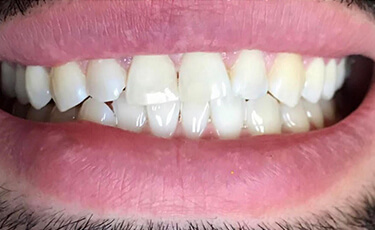How Long Does Cosmetic Dentistry Procedures Lasts?
Cosmetic dental procedures that improve your appearance and boost your confidence can last anywhere from five to ten years. So if you’re looking for a new lease on life when it comes to your smile, consider undergoing a cosmetic dentistry procedure today! Procedures such as teeth whitening, dental veneers and dental implants can give you the beautiful smile you’ve always wanted.
Teeth whitening is a simple and straightforward procedure that can lighten your teeth by several shades in just one appointment. The results of this treatment typically last up to two years, depending on how well you take care of your teeth.
Dental veneers are thin pieces of porcelain that are placed over the front surfaces of your teeth to improve their appearance. This type of cosmetic dentistry procedure can last up to 10 years with proper care and maintenance.
Finally, dental implants are a permanent option for replacing missing teeth or filling gaps in your smile. These titanium posts will look and feel like natural teeth, and they can last for many years if properly cared for.

When considering any type of cosmetic dentistry, it is important to be aware of potential risks associated with the procedure. The most common risks associated with cosmetic dentistry include infection, nerve damage, tooth sensitivity, allergic reactions and complications from anesthesia. While these risks are rare, they should still be taken into account when deciding on a particular procedure.
Infection is always a possibility when undergoing any dental procedure, but the risk can be minimized by selecting an experienced and reputable dentist who follows all safety protocols. All instruments used should be sterilized so that bacteria and other contaminants do not come in contact with the patient’s mouth. Additionally, your dentist should use gloves and face masks to protect themselves and you from cross-contamination.
Nerve damage can occur if a dental instrument slips during a procedure or if an injection into the gums is too deep or in the wrong area. This can lead to permanent numbness or tingling sensations in the affected area. To avoid this complication, make sure your dentist is experienced and understands how to properly administer anesthesia and use dental instruments.
Tooth sensitivity is another side effect of some cosmetic dentistry procedures such as teeth whitening or bonding. The chemicals used can cause temporary discomfort in some individuals due to hypersensitivity of their teeth enamel. To reduce this risk, your dentist will likely recommend protective measures such as fluoride treatments prior to the procedure and avoiding hot foods for a few days after treatment has been completed.
Allergic reactions are also possible with many cosmetic dentistry procedures involving metal restorations such as crowns or bridges due to allergies to metals such as nickel or gold alloys used in these products. Your dentist may suggest testing for metal allergies prior to beginning treatment so that alternatives can be found if needed.
Finally, complications from anesthesia may occur if not properly administered by an experienced practitioner who understands safety protocols.. The most common complications include nausea, dizziness, drowsiness and confusion which can usually be resolved quickly by stopping the procedure until symptoms subside.
Overall, there are many potential risks associated with cosmetic dentistry procedures that must be considered before going forward with treatment plans. Taking precautions such as choosing an experienced dentist who follows all safety protocols greatly reduces these risks while still allowing you to benefit from improved aesthetics of your smile.

https://www.google.com/maps?cid=10725474417078119454
